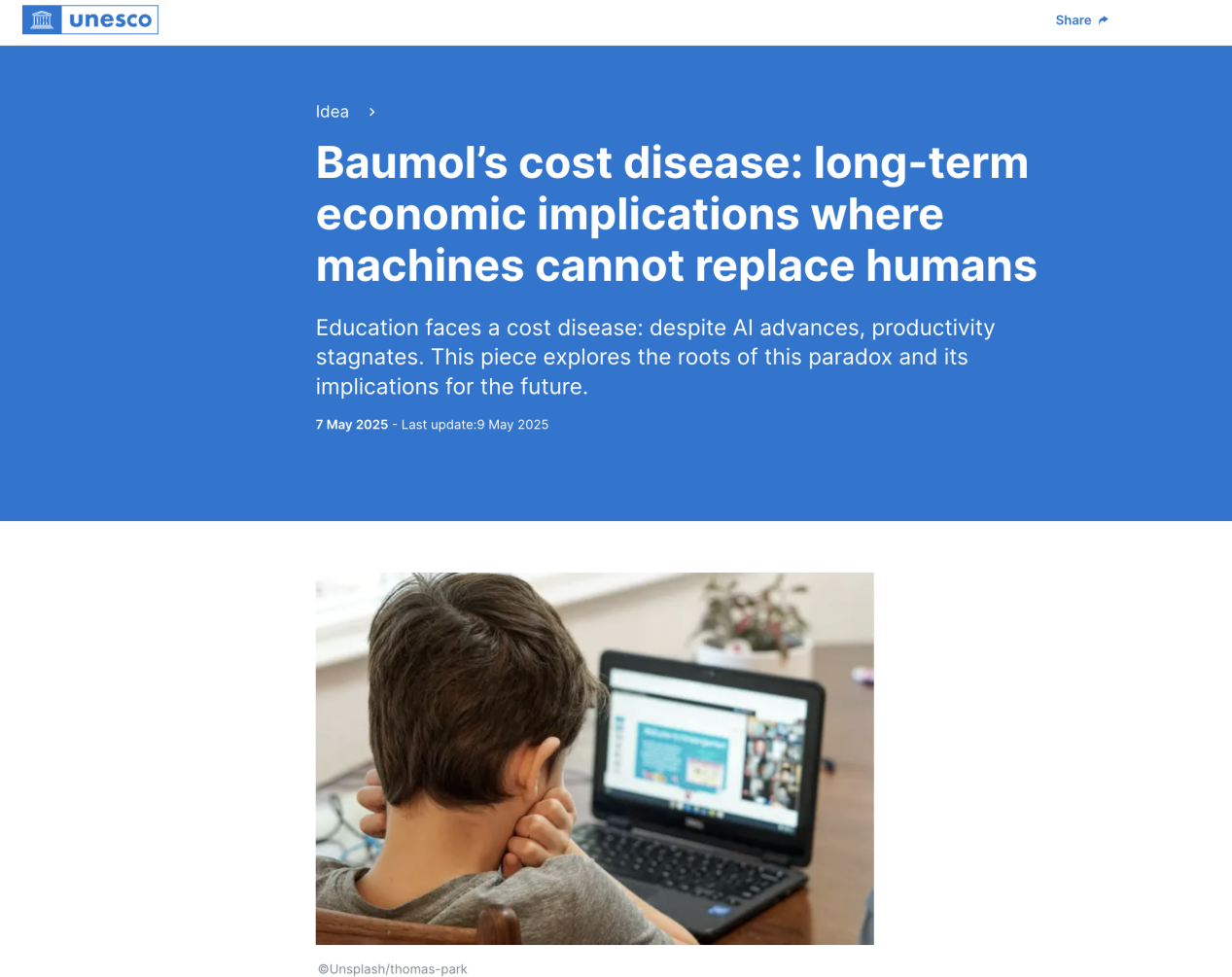The official global website of the United Nations Educational, Scientific and Cultural Organization (UNESCO) has lately published a think piece by Guido Appoldt, a master’s student at the School of Media and Communication, on its IdeasLAB platform. Titled “AI in Education and Baumol’s Cost Disease: Long-term economic implications where machines cannot replace humans,” the article was part of UNESCO’s think piece series on AI and the future of education. It offers an in-depth analysis of the long-term economic implications of AI in the education sector.
Focusing on the theory of “Baumol’s Cost Disease,” the article highlights the stagnation of productivity in education, a labor-intensive sector. Even with the integration of AI, the efficiency of core teaching activities remains largely unchanged. The article argues that AI is better suited for supporting administrative and auxiliary educational tasks rather than replacing essential teaching functions. It further warns that without structural investment in education systems, the continued rise in costs may result in overburdened teachers, declining educational quality, and increased inequality. The paper calls for governments and societies to recognize the unique nature of education and to implement proactive fiscal redistribution in order to ensure equity and quality.
IdeasLAB is UNESCO’s leading platform for intellectual exploration in the fields of knowledge, learning, and the futures of education. It promotes cross-disciplinary dialogue and critical reflection on global educational challenges. Guido Appoldt’s selected think piece not only demonstrates his deep insight into the intersection of AI and sustainable development, but also reflects the growing global presence and academic contributions of SJTU’s international student community.
Read the full article on UNESCO’s official website:
Guido Appoldt is a 2023 master’s student at the School of Media and Communication and a 2023 outstanding bachelor graduate of the university. He is currently supervised by Distinguished Professor Liangwen Kuo.

